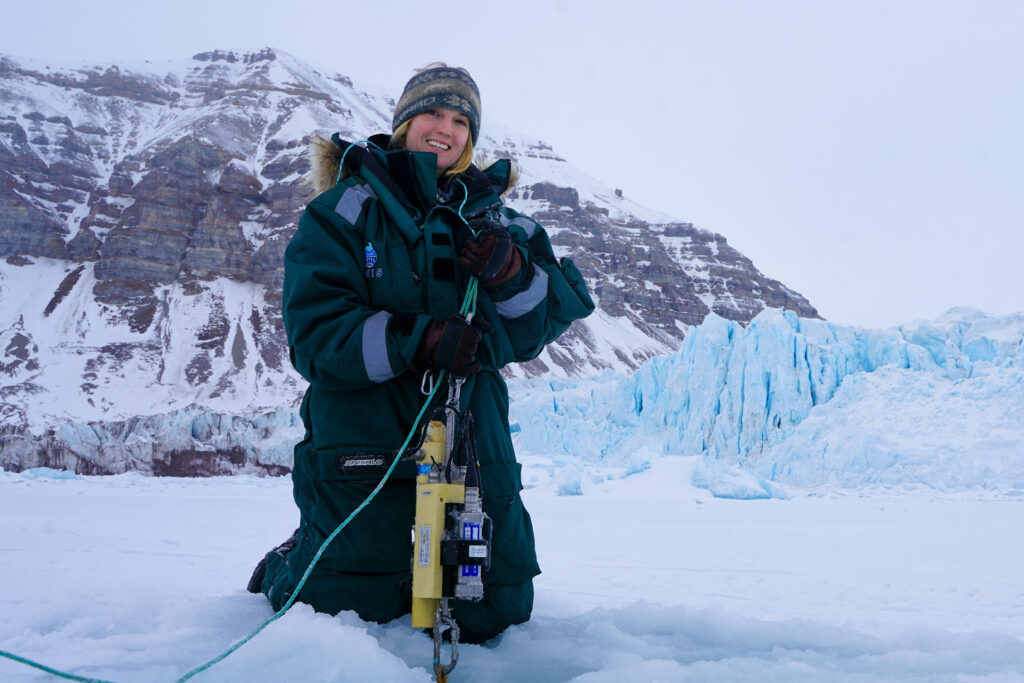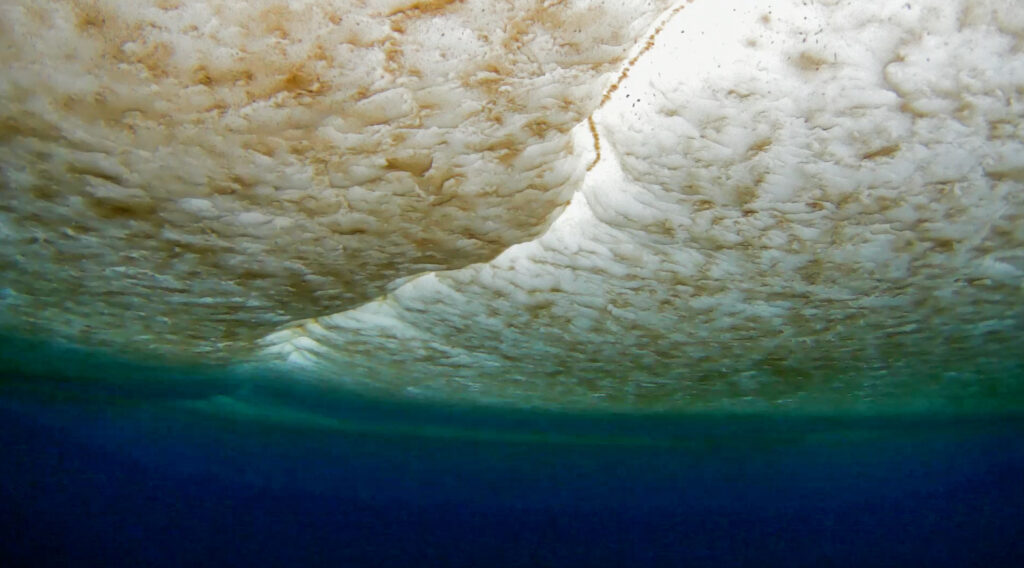By Rebecca Duncan & Georgia Barrington-Smith
The polar food web at risk from shrinking sea ice
Standing on the frozen ocean, it’s hard to imagine life thriving in such a harsh environment. Yet, on the underside of the ice lies a bustling world: a community of sea ice algae and tiny animals called zooplankton. These microscopic organisms form the foundation of polar marine food webs, supplying critical energy and nutrients to fish, seals, whales, and other marine life.
However, these delicate ecosystems in the Arctic, Antarctic, and Southern Ocean are at risk, being profoundly affected by climate change. The Antarctic has hit record-low sea ice levels for the past four years, while Arctic Sea ice is shrinking by 12% each decade, with ice-free summers predicted by 2050. The polar oceans are also warming and becoming more acidic. The Southern Ocean alone absorbs half of the heat and carbon dioxide taken up by the world’s oceans, meaning these ecosystems are some of the fastest-changing regions on the planet.
Rebecca’s journey to the Arctic
Dr. Rebecca Duncan’s research, supported by an AINSE Postgraduate Research Award (PGRA), in collaboration with ANSTO, University of Technology Sydney and UNIS Svalbard has revealed how these changes impact sea ice algae, the microscopic algae that kickstart life in polar waters.
Rebecca conducted extensive field work in the Arctic archipelago of Svalbard, collecting sea ice algae from a wide range of environmental conditions over three years. Using the powerful infra-red beamline at ANSTO’s Australian Synchrotron, Rebecca obtained rare, single-cell insights into how individual species of sea ice algae respond to environmental changes.

Melting ice and warming ocean impacts nutritional value of microalgae
Her findings show that shifts in sea ice and ocean conditions affect microalgae community structure and the nutritional value they provide; their fat, protein, and carbohydrate concentrations. These changes have cascading effects throughout polar marine ecosystems.
Specifically, her research revealed that light levels beneath the sea ice play a crucial role in shaping the structure of microalgal communities. She also found that thinning sea ice, increased light availability, and warming waters initially boost fat production in dominant microalgal species. However, this increase has a limit—once a tipping point is reached, the algae become stressed, causing their health and nutritional value to decline. As sea ice continues to thin and melts more rapidly from below, these conditions could reduce the algae’s nutritional quality and disrupt their life cycles, raising serious concerns for the polar food webs that depend on them.

Acidification of the frozen ocean
In a related study, Rebecca investigated how Antarctic microalgae responds to ocean acidification—a consequence of rising carbon dioxide levels. Exposing these microalgae to future CO2 conditions revealed that some species store more fats and proteins, and that smaller species with higher nutritional value could become dominant. As smaller species are often less efficiently consumed, this has the potential to alter how energy flows through Antarctic ecosystems.
Together, Rebecca’s research provides unprecedented insights into the adaptability of polar microalgae, whilst shedding light on how climate change could disrupt energy flow in polar ecosystems, affecting everything from the smallest algae to the largest marine predators.
Rebecca’s fight for women working in the poles
Alongside her ground-breaking research, Rebecca has been advocating for women in field-based research. Conducting fieldwork in remote and extreme environments is incredibly challenging, but for women this is often intensified.
In a multidisciplinary study published in PLOS Climate and commented on in ‘The Conversation’, Rebecca and her collaborators revealed that 79% of female-identifying respondents had negative experiences while doing fieldwork in the Arctic and Antarctica due to factors including problematic team dynamics, harassment, and sexism.
As a newly appointed 2025-2026 ‘Superstar of STEM’ by Science and Technology Australia, Rebecca hopes to continue to tackle society’s gender assumptions about scientists and increase the public visibility of women and non-binary people in STEM. Through this program Rebecca also aims to increase awareness about the barriers of women conducting polar and other field-related research.
AINSE are proud to spotlight Rebecca Duncan for her incredible research and we look forward to following her advocacy work with her new Superstar Status!
Read more research spotlights at ainse.edu.au/research-spotlight and keep an eye out for our next article in the Christmas polar edition, where we will be ‘walking back in time’ to uncover Lottie’s journey to find cosmic clocks in Antarctic rocks.
Follow ainse_ltd on Instagram, Facebook, Threads and LinkedIn to keep up to date with upcoming events and research spotlights.
